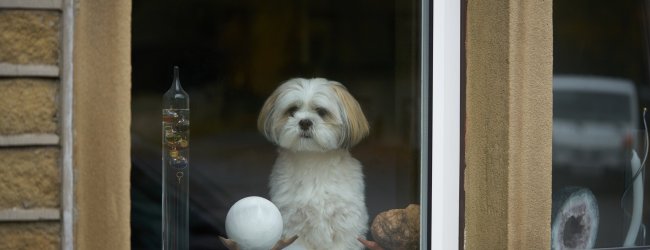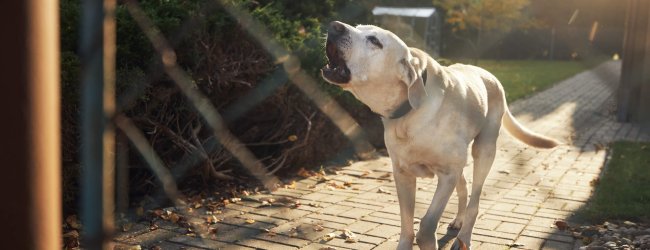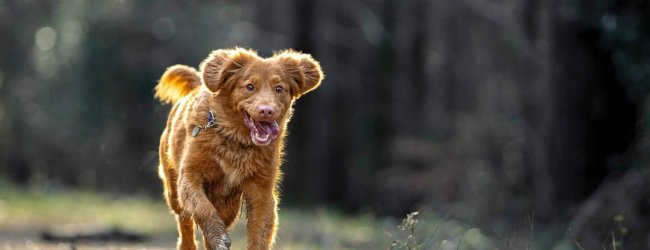How To Stop A Puppy From Biting: Managing Puppy Teeth Troubles
It's natural for a new puppy to bite a lot. But it's good to redirect this behavior to avoid someone getting hurt. Learn how to stop a puppy from biting with these training tips.
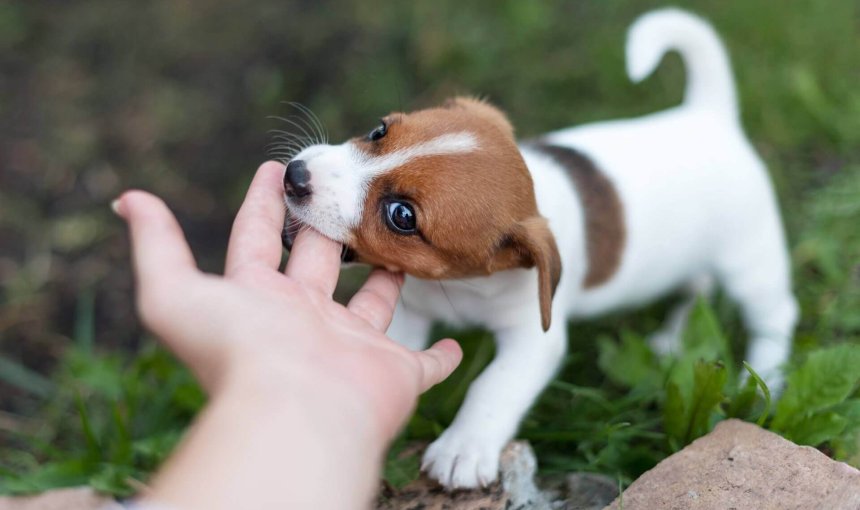
You just brought home a new puppy – congratulations! During your first play session, your adorable puppy bites down on your hand with razor-sharp little teeth. OUCH!! Definitely not OK. But how do you get your puppy to stop biting? Learn how to stop or redirect puppy biting in this article.

Find out how your dog spends their time.
Read more- Why do puppies bite?
- Teach your puppy to stop biting early
- Give your puppy an alternative item to chew
- Provide appropriate exercise, socialization and mental stimulation
- Keep your puppy fit & safe with Tractive GPS
- Avoid rough and tumble wrestling games which involve biting
- Teach your puppy that biting means “game over”
- Use firm commands
- Refrain from punishing your pup
- Enroll in a puppy class for training success
- Allow your puppy to socialize and play with other dogs
- Keep playtime fun and free of puppy biting
Why do puppies bite?
Biting, chewing, and puppy mouthing are a normal part of puppy development. Just like human babies, puppies learn about the world by putting things in their mouth. Puppies bite to discover how objects taste, how hard they can bite down, and to decide if they should continue biting an item.
At about 12-16 weeks old, puppies’ adult teeth start to come in and their tiny puppy teeth fall out. During this teething period, your puppy’s gums may be sore and chewing on soft toys may relieve some discomfort.
You can’t stop puppies from chewing or mouthing altogether. But you can help your puppy learn that biting your hands, feet, fingers, shoes, sofa cushions, or chair legs is not allowed.
Read more about caring for new puppies in our Puppy Care Guide.
Teach your puppy to stop biting early
Your first little puppy bite might be cute, but the cuteness wears off quickly when puppies bite repeatedly. It’s best to teach your puppy to stop biting right away, before the puppy biting behavior becomes habitual and continues into adulthood. Having chew toys available, reacting to your puppy’s bites properly, and using behavioral dog training can help stop puppy biting.
Give your puppy an alternative item to chew
Your puppy is guaranteed to want to bite something, so give your puppy appropriate items to chew on. Choose squeaky puppy toys, a rope toy, or puppy-sized rubber ball. You can even purchase specially-made puppy teething toys which are made with softer plastic to protect the baby teeth and the new teeth coming in.
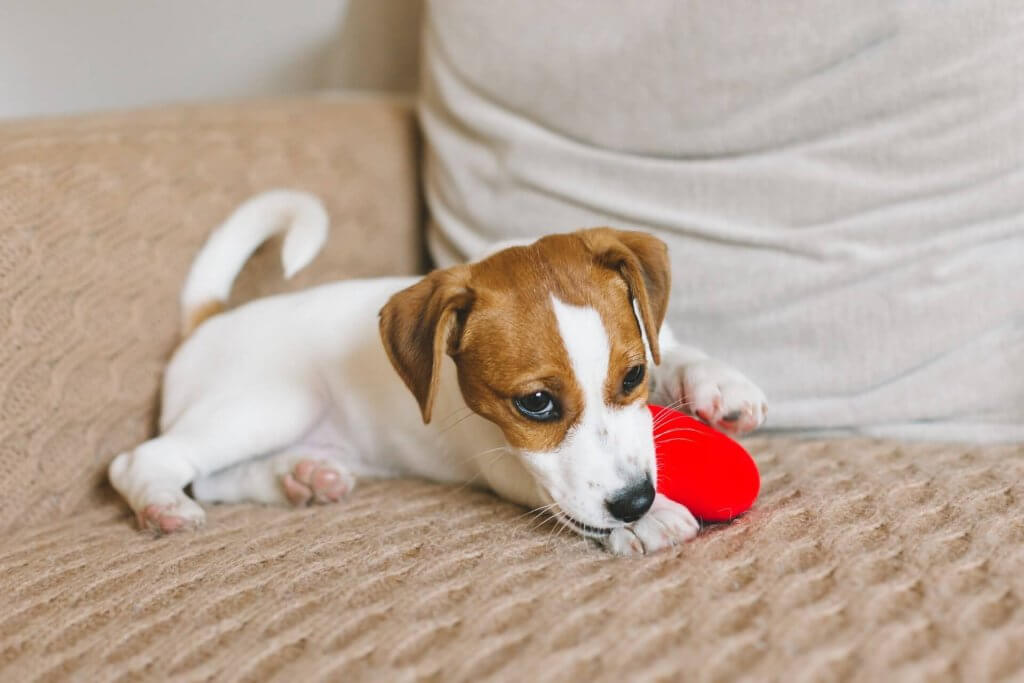
Your puppy may need some help getting started with a new chew toy, so wiggle the toy on the floor and invite your pup to engage with it. When your puppy grabs the toy, give them verbal praise. These verbal signals tell your pup that their actions are appropriate. The positive vibes make it more likely that your puppy will choose to bite the chew toys next time instead of your shoes.
Provide appropriate exercise, socialization and mental stimulation
Puppyhood is the perfect time to establish good habits and a strong bond with your dog. Your puppy’s daily playtime is a great place to start.
Puppies have lots of energy to burn. They’ll run around like crazy for a short time, then collapse into a deep sleep. Join in the fun when your puppy is in high gear and help them get some exercise to wear them out. Take your puppy on short walks several times a day to satisfy their need for activity. Walks also provide sensory stimulation as your puppy encounters new sights and smells along your route.
Now is the time to introduce basic obedience training to your puppy. Simple commands like Sit and Stay will give your puppy something to focus on instead of biting. Use positive reinforcement such as treats or verbal praise when your puppy performs a behavior correctly. Never use punishment as a dog training tool.
At the end of a busy day filled with exercise, puppy training, and playtime, your puppy will be too worn out to become bored and engage in destructive biting behavior.
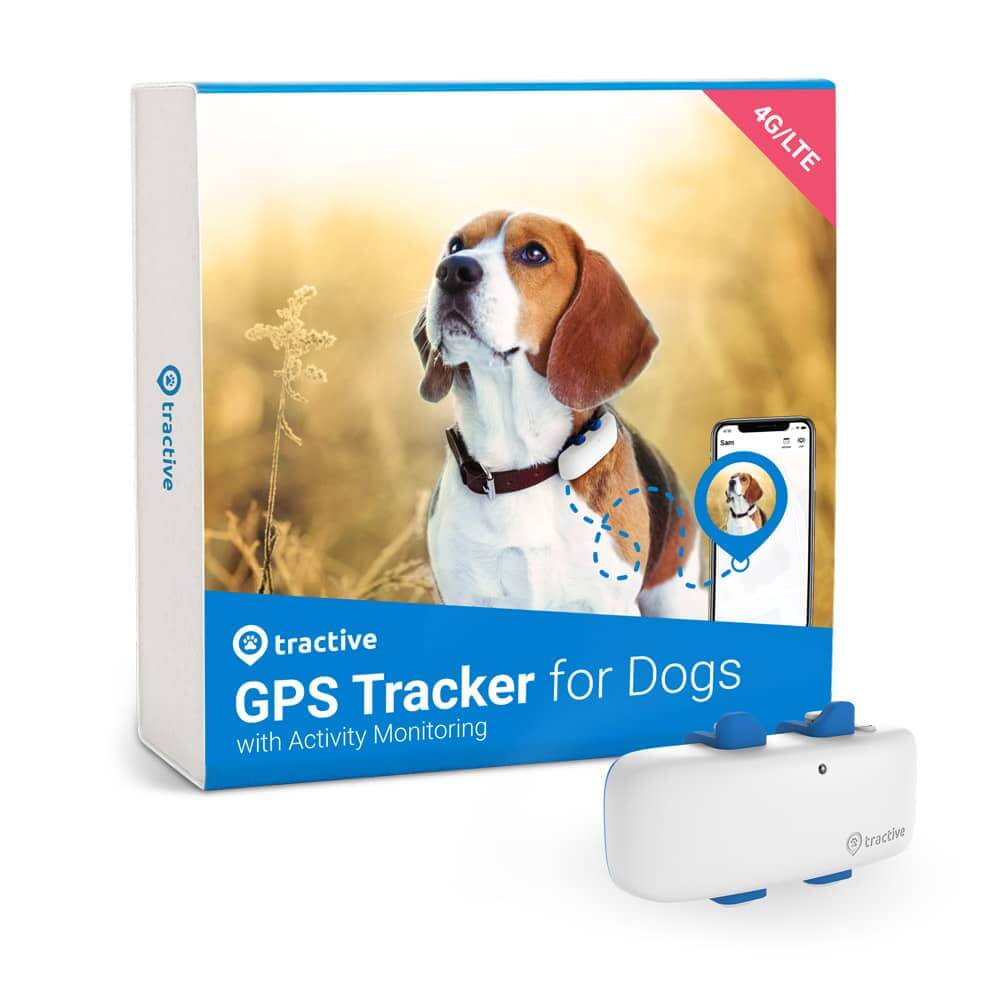
Keep your puppy fit & safe with Tractive GPS
Follow every step in real-time with unlimited range. Get alerts if they wander too far. Track activity and monitor sleep patterns. And let others – like walkers or sitters – keep an eye on your dog too.
Avoid rough and tumble wrestling games which involve biting
A soft puppy belly just begs to be tickled, but we all know what happens next – your puppy will naturally chomp down and insert all those sharp little teeth into your hand.
As tempting as it can be to wrestle with your pup, don’t do it. The message during this type of rough play is “It’s OK to bite me.” This is the exact opposite of the message you wish to send. Chose no-contact forms of play such as fetch if biting is a persistent problem.
Teach your puppy that biting means “game over”
As you interact with your new puppy, you will probably get nipped by a play bite. To teach your puppy that biting is not allowed and inhibit their biting instinct, you must let them know that biting means “game over.” Here’s how to teach bite inhibition and stopping puppy biting:
- If your puppy nips you, immediately make a high-pitched yelp and take your hand away.
- Sit calmly and ignore your puppy in silence for about 20 seconds. This sends a strong signal to your puppy that they have acted inappropriately.
- Resume playing with your puppy. If they bite again, get up and leave the room for another 20 seconds.
- Repeat this sequence each time your puppy bites you. If puppy biting happens too many times, end the play session entirely.
This process is similar to the way puppies learn about bite inhibition as they are raised in a litter. Sibling puppies will nip each other while play biting and wrestling. If they play bite too hard, their littermate will give a high-pitched yelp and step away from the play session. From these experiences, puppies learn bite inhibition and that rough play biting is not OK.
Throughout your puppy’s daily play sessions and while teaching bite inhibition, remain calm and authoritative. Remember, you are the alpha dog and the leader of the puppy’s pack. They instinctively want to please you and follow your lead.
Use firm commands
Training your puppy is all about exhibiting firm, authoritative leadership like the alpha dog that you are. Picture a wolf pack: the alpha wolf deals with misbehavior consistently and decisively. They don’t spend time explaining their authority or pleading for compliance.
This is the foundation of basic dog obedience and behavioral dog training. By remaining firm and consistent when communicating to your puppy, you are not being mean. You are satisfying your puppy’s need to be part of a pack. In the wild, a wolf pup’s survival depends on being part of the pack. In a way, that’s true for your puppy too. Many puppies are re-homed due to poor behavior. Don’t let that happen to your sweet little puppy. Take control now.
Refrain from punishing your pup
When your puppy bites you or misbehaves in some other way, do not punish them by hitting or yelling. It’s better to redirect their behavior. If your puppy bites, redirect their biting behavior by offering a chew toy. Or, ignore your puppy. If you withdraw your attention by stopping play, turning your back, or leaving the room, you are sending a strong message that your puppy has not behaved properly. Your puppy will soon learn that they should stop the offending behavior if they want your attention.
Yelling and hitting are actually a form of attention, albeit negative attention. Puppies view your attention as a reward. If negative attention like yelling and hitting is the main type of attention your puppy receives, they will continue bad behavior as a way to get your all-important attention, even if it is negative.
Your goal during puppy training is to reinforce positive behavior. Reward your puppy’s good behavior with positive reinforcement like a treat or verbal praise. Offer an ear rub and a “good dog” while they are playing appropriately or being calm. Over time, puppies will associate calm behavior with a reward. That makes them more likely to repeat that good behavior.
Enroll in a puppy class for training success
For help training your puppy with puppy biting, puppy mouthing, and other behaviors, enroll in a puppy class. You and your puppy will learn basic obedience commands and puppy training techniques that you can practice at home. The dog training methods you learn at puppy class can be used and expanded on for your dog’s entire life.
Training is a great way to bond with your puppy. Plus, training is a form of mental stimulation that helps your pup learn to focus and concentrate.
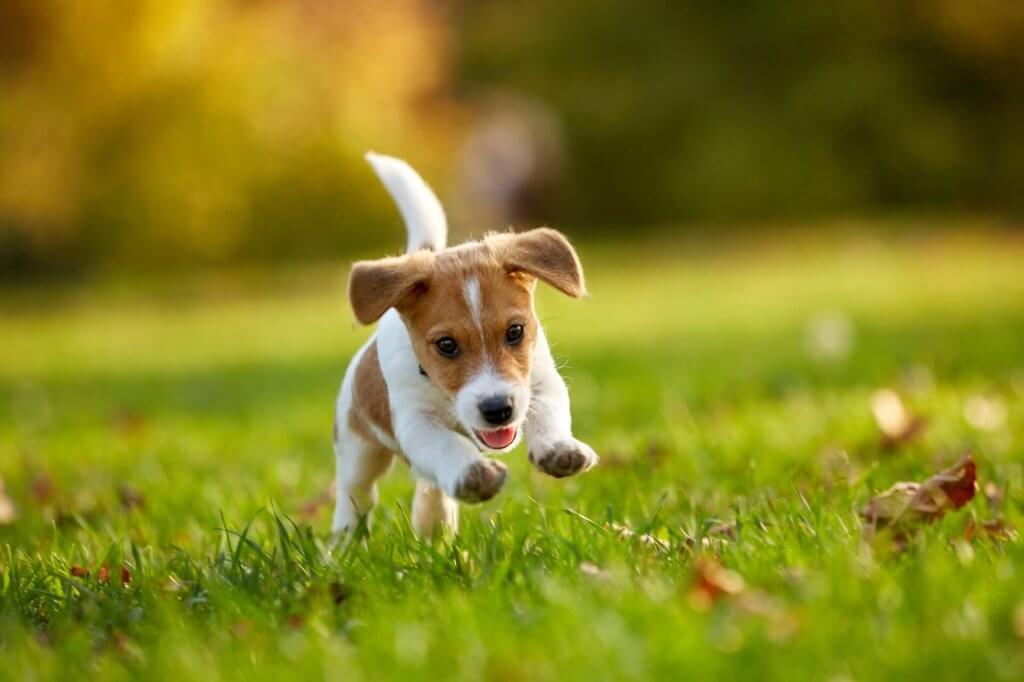
Allow your puppy to socialize and play with other dogs
Playing with other dogs is important for your puppy’s social development. They’ll probably discover first-hand what it’s like to get nipped by another dog. These bite-inhibition lessons are part of learning how to play nicely with other dogs and people.
Be sure that your puppy and their playmates are up to date with all their vaccinations before playing together.
Keep playtime fun and free of puppy biting
Puppies are so much fun – they’re clumsy, energetic, and oh so adorable. When you teach puppy bite inhibition, you bond with your little dog and set the stage for a lifetime of safe and enjoyable adventures together.
